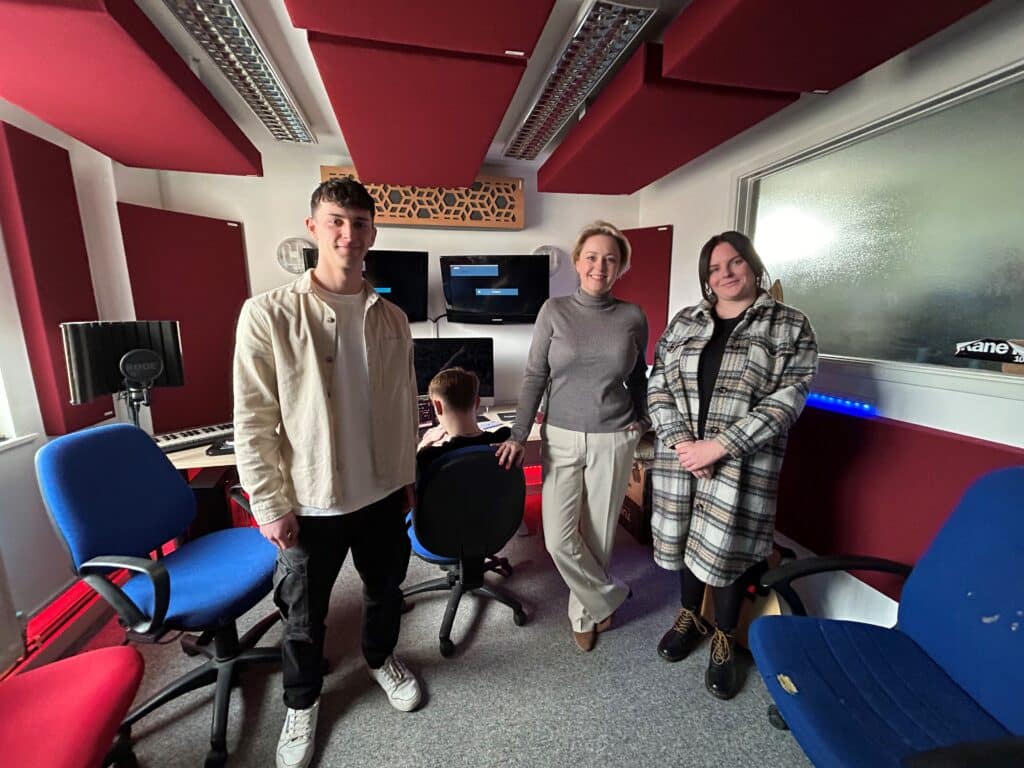CHILDREN are being recruited into county lines drug dealing gangs by criminals aided by the use a “new” form of language that parents won’t necessarily recognise, Surrey’s Deputy Police and Crime Commissioner says.
In an interview on BBC Radio Surrey, Ellie Vesey-Thompson said young people exploited by gangs to ferry drugs are often communicating using emojis.
Surrey Police has previously warned that some emojis – such as the snowflake, the 8-ball and the rocket – are code for drug use.
But Ellie said there is support available for children and young people at risk, and highlighted the work of Catch22.
“It saved my life”
The service’s Farnham-based Music To My Ears programme, which has been fully-funded by the Office of the Police and Crime Commissioner, has so far supported more than 800 vulnerable young people.
- “It literally saved my life”: Read more about Commissioner Lisa Townsend’s visit to Catch22 earlier this year.
One of its clients, 17-year-old ‘Dylan’, was dealing drugs at 13 after being recruited by a gang. Speaking to the BBC, he said the “easiest way” for gangs to contact young people is through family and friends.
“Once [that person is] approached, they get the whole friend group,” he said.
“Money is the world – you need that for food, heating, your mum’s debt. That’s your mum not crying.”
- You can listen to the BBC Surrey interviews here from 2:06:49 (available until June 11 2025)
Children exploited
Ellie told the BBC: “Often children and vulnerable victims don’t realise they’ve been groomed and they are being exploited.
“They might get dragged in by the promise of money, or even the latest trainers.
“They’re attracted to what they perceive, and what those criminals present as, quite a glamorous lifestyle, and nowadays with advances in technology, it’s so much easier to contact young people without even their parents necessarily knowing.
“They’ve got that phone device in their pocket and use things like Snapchat, Instagram, and then they use this whole other language through emojis that parents might not instantly recognise even if they are checking phones.”
OPCC funding
Ellie said the prevention work of organisations like Catch22 is essential.
Young clients do not need to be involved in criminality to access support. Often, children and young people are referred by police, schools and social services because it is feared they are vulnerable to exploitation.
Over the past four years, the Office of the Police and Crime Commissioner has committed almost £400,000 to Music To My Ears. Clients have the opportunity to explore music production, photography, film-making and writing.
The programme offers voluntary attendance, meaning clients cannot be compelled to attend. However, many continue to work with the programme for months or years.
New offence
Ellie said: “Many young people who are using Catch22 – which is a brilliant project – they may have committed crime, but they don’t necessarily have to have committed offences to be referred.
“They are at risk.”
The Government has recently introduced a new offence and prevention orders to tackle child criminal exploitation, which will target adults who exploit children into criminal activity.
Ellie told the BBC: “The best thing we can always do for victims, whether it’s children or adults, is stop them becoming victims in the first place.”

Commissioner Lisa Townsend, standing second from the right, met the team from Catch22 at their Farnham base in February